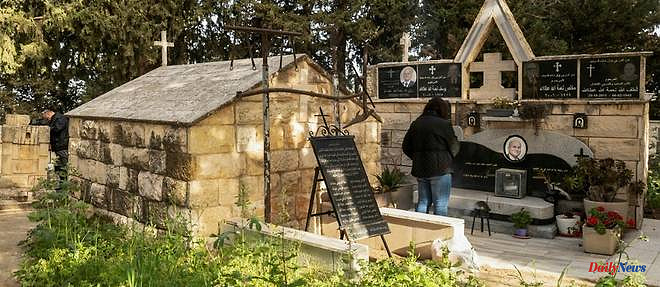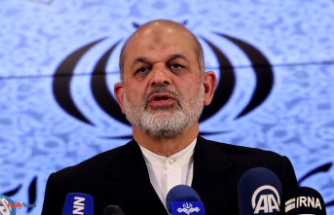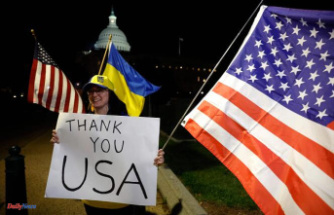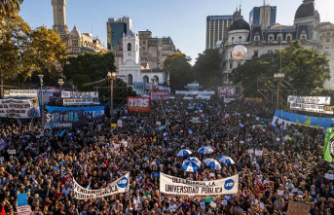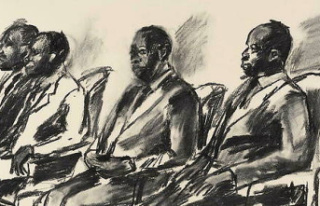Between the ruins of the homes of their ancestors and the expanses of spring flowers, Christians gathered on the eve of Easter on Friday to carry on the tradition, decades after the destruction of their village in northern Israel , near the border with Lebanon.
The annual pilgrimage took place, despite the sudden outbreak of fever in the Israeli-Palestinian conflict and the exchange of fire a few hours earlier on both sides of the border.
In the cemetery, while the faithful burn incense on the graves of their loved ones and lay flowers, Father Souhail Khoury recalls how important he is for his community, driven from its lands by the army shortly after the foundation of the State of Israel in 1948, to return to this Palestinian village of Iqrit.
"All the families of the village, accompanied by their children, come back here on Good Friday to visit our buried relatives, our parents, and to pray," he testifies.
Of Iqrit, only the cemetery and a church on the top of a hill remain. Despite a Supreme Court ruling in 1951 that allowed residents to return to their homes, the Israeli army destroyed homes in the village on Christmas Eve that same year, preventing their return.
The stones of the ruined houses are still visible, between the grass and the yellow flowers that dot the landscape.
“We are here in our village, but we are refugees in our country,” adds the priest.
This Good Friday, Father Khoury led the community of a few dozen people, from young children to elders, who gathered in prayer around the graves.
Ziyad Hanna, one of the faithful, assures that the assembly ignored the fear caused by the recent bombardments.
“We went through very difficult times. But despite that, the majority of people come to do their duty, meet and perpetuate the tradition,” says this computer scientist. "We are proud to be part of (the community), to be associated with our village and our heritage."
Hundreds of villages were destroyed during the Nakba, or "catastrophe" in Arabic, the exodus of more than 760,000 Palestinians driven from their homes or fleeing in 1948.
A book by Palestinian writer Walid Khalidi has documented more than 400 villages destroyed or emptied of their population and the Israeli organization Zochrot ("Memories" in Hebrew) has listed 600.
But in Israel, these events "have been largely denied so far", according to Rachel Beitarie, director of this organization which tries to raise awareness of the Nakba.
"Once you've seen this, you can't close your eyes," she says of the destroyed villages.
The descendants of Iqrit, after having tried several times without success to obtain justice, return to the village to celebrate Christian festivals, weddings and funerals.
Ranin Attallah is part of a group that camped next to the church on Good Friday.
"We always come here with people from the village, always for a short time," says the 45-year-old woman who works in education and has written poems dedicated to the village.
"When we come, we bring food, we sleep here, we walk around, we discover new things and we discover our history," she says.
While the community of Iqrit gathered, the Christians of Jerusalem took part in a procession through the Old City, retracing the Stations of the Cross traveled by Christ before the crucifixion, according to Christian tradition.
In their Easter message, leaders of the main Christian churches in Jerusalem warned that Christians in the Holy Land had become "targets of attack".
Yaser al-Ayyash, a vicar of the Melkite Church, the Eastern Catholic Church of the Greek rite to which the families of Iqrit belong, explains that the leaders are trying to support their faithful in this difficult situation.
"We must perpetuate our traditions because they express our faith. This is part of the traditional life of the Church here in Jerusalem, in the Holy Land."
The descendants of Iqrit also say they are determined to celebrate Easter every year. "Today the church is everyone's home and here it is the community's home," says Father Khoury.
07/04/2023 17:50:32 - Iqrit (Israel) (AFP) - © 2023 AFP

